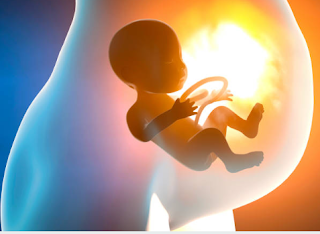Does ketosis have any effect on pregnancy and babies? YES.
Organ development in the developing embryo is altered by a ketogenic diet
during pregnancy. Such modifications could lead to postnatal behavioral changes
as well as organ dysfunction.
FAQs Related To Does Ketosis Have Any Effect On Pregnancy
And Babies?
Can ketones harm my unborn baby?
There is some worry that an abundance of ketones may impair
the baby's cognitive development because ketones do cross the placenta to the
baby. It's usually fine to have occasional traces of ketones in your urine
without any other symptoms. However, persistently elevated ketone levels or
signs of too many ketone bodies could have an impact on your pregnancy.
What does ketosis do to a baby?
Babies transform the fat in their diet (ideally breastmilk)
and body fat stores into ketones. Between feedings, they can get the energy
they require from these ketones, which also serve as important building blocks
for vital brain tissues.
How are ketones treated during pregnancy?
Treatment for Ketones in urine due to nausea and vomiting
during pregnancy (morning sickness) The condition can be resolved by changing
your diet and eating properly when ketones are produced as a result of
vomiting, starvation, or fasting. If you don't feel like drinking anything, you
should still stay hydrated.
Read also: Which Weight Loss Plan Is Most Effective?
What are the symptoms of ketoacidosis in pregnancy?
Ketoacidosis in pregnant women typically presents with the
same symptoms as in non-pregnant patients, but with an aggressive onset.
Nausea, vomiting, polyuria, polydipsia, and changes in mental status are among
the symptoms.
What causes high ketones in pregnancy?
They are a sign that you are not eating enough calories
at regular intervals throughout the day or that your blood glucose level is
too high when they are discovered in your urine. You may have trace amounts of
ketones in your morning urine if you didn't eat enough the day before. missing
your snack before bed.
At what blood sugar level does ketosis start?
Ketosis is defined as occurring when there are 0.5 to 3
mmol/L of ketones in the blood. Ketones can be detected using a variety of
tools, such as urine test strips, breathalyzers, and blood monitors.
What is the difference between ketosis and
ketoacidosis?
Although they share a name, ketosis and ketoacidosis are two
distinct conditions. When the body breaks down fat for energy, ketones are
created, and this state is known as ketosis. Only if the body produces an
excessive amount of ketones can ketosis develop into diabetic ketoacidosis
(DKA), a potentially fatal condition.
Can ketones pass through the placenta?
The placenta allows ketone bodies to freely pass through.
They can have an impact on fetal growth and the development of various organs,
particularly the central nervous system.
What happens if you have too many ketones?
Blood becomes overly acidic when ketone levels are high.
Ketoacidosis is the medical term for this severe condition. Diabetic
ketoacidosis, a complication of diabetes, is the most prevalent type of
ketoacidosis (DKA). DKA is a medical emergency that frequently occurs quickly,
can result in a coma, and is potentially fatal.
Read also: What Foods Speed Up Metabolism Before Bed?
Can ketosis cause diabetes?
They discovered that because keto diets prevent the body
from using insulin properly, blood sugar levels aren't properly controlled.
Insulin resistance results from this, and type 2 diabetes may result as a
result.
Can you have ketosis and not be diabetic?
Although type 2 diabetes patients occasionally experience
ketoacidosis because of low insulin levels, type 1 diabetes patients experience
it more frequently. In people without diabetes, ketoacidosis is uncommon, but
it can happen in starvation situations.
Is ketosis serious?
A healthy, normal body reaction to low-carbohydrate diets or going without food for a while maybe ketosis (fasting). On the other hand, too many ketones can cause ketoacidosis, a potentially fatal complication where your blood becomes acidic.








